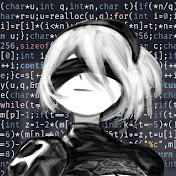Imaginary is a poor name for them because it implies they dont exist. Complex numbers is more appropriate
Complex numbers ≠ Imaginary numbers
Imaginary numbers are any number multiplied by the square root of negative 1, a complex number has both a real and imaginary part. 10+i is complex, 10*i is imaginary.
Yep. So my point still stands. Imaginary numbers are a part of complex numbers
The Italian Bombelli in 1572 seemed to toy with both concepts but called imaginary numbers “quantità silvestri” (silvestri meaning ‘wild’) and complex numbers “numeri complessi”. Interesting the imaginary is a quantity and the complex is a number, but maybe old Italian didn’t have that distinction.
I suppose Descartes would agree with you, he first coined the term “imaginary” because he didn’t think they’d serve much purpose. Euler made use of them and continued using the term. Complex number is a complex - a number with a real and an imaginary component.
A wild number appeared!
the name seems to be an unfortunate choice that stems from their historical usage as “a means to an end”. i.e, they were first used as part of a method to find some solutions to cubic equations. this method would require algebraic manipulations of complex numbers, but the ultimate goal was to discover a real root. the complex roots would be discarded once a real root was found (if it existed).
the wikipedia article attributes the name to Descartes:
… sometimes only imaginary, that is one can imagine as many as I said in each equation, but sometimes there exists no quantity that matches that which we imagine.
which i think helps to highlight how skeptical the people at that time were about the existence of the “imaginary” numbers.
source: memories of my first complex analysis class, and https://en.wikipedia.org/wiki/Complex_number#History
i’d strongly recommend reading the history section of that wikipedia page to anyone interested in the topic, it has some pretty fun history
Well it’s true, they don’t exist
There are concepts in nature they describe as well as real numbers describe other concepts. They definitely exist.
Fine, then you figure out what the square root of a negative number actually is!
deleted by creator
Well actually it’s the other way around. The reason imaginary numbers were invented was to solve a problem we’d been crying over for centuries.
Then, as in most cases, solving one problem opens the door to millions of other problems like why in the fuck does the universe use these imaginary numbers we made up to solve cube roots?
Why is i a core part of the unit circle with like ei*pi ? “Oh that’s because i is just perpendicular to the real number line” ?! Say that sentence again, how the fuck did we go from throwing sharp sticks to utterly deranged sentences like that? More importantly why do utterly deranged sentences like that accurately describe our universe and what is the next ludicrous math concept we’re going to discover is integral to the function of the universe?
Hate to break it to you, but all numbers are imaginary.
Is that number with us in this room right now?
¬
Thank you evoker!
but our iR is in another ethereal plane!
https://lemmy.blahaj.zone/post/15648655
I wrote a piece about why imaginary numbers are actually important. It’s in german though.
To sum it up, to every polynomial equation, there exists at least one solution to it, if you allow complex numbers to be solutions.
OP, you need to watch this video. https://youtu.be/cUzklzVXJwo
Spoiler
Imaginary numbers exist in nature.
Math: Imaginary numbers!
Me: Fuck that, imaginary dragons.
deleted by creator








